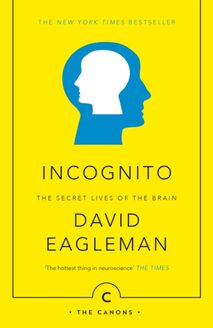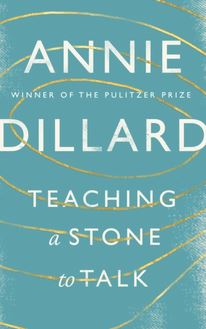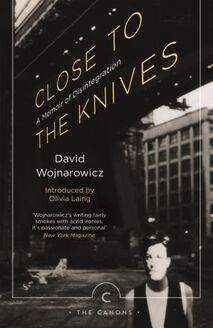-
 Univers
Univers
-
 Ebooks
Ebooks
-
 Livres audio
Livres audio
-
 Presse
Presse
-
 Podcasts
Podcasts
-
 BD
BD
-
 Documents
Documents
-
- Cours
- Révisions
- Ressources pédagogiques
- Sciences de l’éducation
- Manuels scolaires
- Langues
- Travaux de classe
- Annales de BEP
- Etudes supérieures
- Maternelle et primaire
- Fiches de lecture
- Orientation scolaire
- Méthodologie
- Corrigés de devoir
- Annales d’examens et concours
- Annales du bac
- Annales du brevet
- Rapports de stage
La lecture à portée de main
Vous pourrez modifier la taille du texte de cet ouvrage
Découvre YouScribe en t'inscrivant gratuitement
Je m'inscrisDécouvre YouScribe en t'inscrivant gratuitement
Je m'inscrisEn savoir plus
Vous pourrez modifier la taille du texte de cet ouvrage
En savoir plus

Description
Sujets
Informations
| Publié par | Canongate Books |
| Date de parution | 07 avril 2016 |
| Nombre de lectures | 0 |
| EAN13 | 9781782117728 |
| Langue | English |
Informations légales : prix de location à la page 0,0400€. Cette information est donnée uniquement à titre indicatif conformément à la législation en vigueur.
Extrait
The ABUNDANCE
Annie Dillard has spent a lifetime examining the world around her with eyes wide open, drinking in all things intensely and relentlessly. She conjures currents of magic and wisdom, illuminating the seemingly ordinary moments of a life lived fearlessly – as a breathless teenager, as a roving young adult and as a writer – with her unique wit, boundless curiosity and fierce, undeniably singular voice.
Whether observing a sublime lunar eclipse or a moth consumed in a candle flame, the trembling of lily pads on a pond or hundreds of red-winged blackbirds taking flight, Dillard’s awe at the fragility of the natural world rejuvenates and inspires pleasure and heartache.
Precise in language and deeply meditative in spirit, this is a landmark collection from one of America’s masters. A formative figure in contemporary non-fiction and winner of the Pulitzer Prize, The Abundance showcases Annie Dillard in all her enigmatic genius.
ALSO BY ANNIE DILLARD
Tickets for a Prayer Wheel (1974)
Pilgrim at Tinker Creek (1974)
Holy the Firm (1977)
Teaching a Stone to Talk (1982)
Living by Fiction (1982)
Encounters with Chinese Writers (1984)
An American Childhood (1987)
Writing Life (1989)
The Living (1992)
Mornings Like This (1995)
For the Time Being (1999)
The Maytrees (2007)
The ABUNDANCE
ANNIE DILLARD
Foreword by Geoff Dyer
First published in Great Britain in 2016 by Canongate Books Ltd, 14 High Street, Edinburgh EH1 1TE
www.canongate.co.uk
This digital edition first published in 2016 by Canongate Books
Copyright © Annie Dillard, 2016 Foreword copyright © Geoff Dyer, 2016
The moral rights of the authors have been asserted
First published in the United States of America in 2016 by HarperCollins Publishers, 195 Broadway, New York, NY 10007
See page 303 for a full list of publications in which the pieces in The Abundance have been published previously.
British Library Cataloguing-in-Publication Data A catalogue record for this book is available on request from the British Library
ISBN 978 1 78211 771 1 eISBN 978 1 78211 772 8
Designed by Suni Manchikanti
For Phyllis Rose
The immense life of us all. We are all ordinary when there are so many of us; and yet—such a festival!
KAREL CAPEK
They will question thee concerning what they should expend. Say: The Abundance.
THE QUR’AN, SURA OF THE COW
CONTENTS
FOREWORD BY GEOFF DYER
ACKNOWLEDGMENTS
Total Eclipse
The Deer at Providencia
The Weasel
Newborn and Salted
Waking Up
Skin
Being Chased
Jokes
Waking Up Wild
Old Stone Presbyterian
Turning Out Badly
Envoy
A Writer in the World
This Is the Life
Disneyland
On Foot in Virginia’s Roanoke Valley
Seeing
The Waters of Separation
Tsunami
Footprints
Sand
An Expedition to the Pole
FOREWORD
A passage from An American Childhood —presented here as a short essay called “Waking Up”—ends with the characteristically brilliant image of a woman diving into water, becoming sealed in her reflection, and wearing it “as she climbs rising from the pool, and ever after.” It’s Annie Dillard all over, that passage, that image. Waking up (coming into consciousness), remaining wide awake, leading “a life of concentration,” rather than sleep-wading through life, have been her abiding concerns. Her first book, Pilgrim at Tinker Creek, begins with the author waking “in daylight to find my body covered with paw prints in blood.”
A writer who never seems tired, who has never plodded her way through a page or sentence, Dillard can only be enjoyed by a wide-awake reader. By which I really mean that she rejuvenates even the word-weary, who—it can happen to the best of us—has succumbed, like Henry in John Berryman’s fourteenth Dream Song, to being bored by literature, “especially great literature.” Maybe that’s part of her appeal: the way that her best work often comes in shapes and forms unencumbered by the protocols associated with “great literature.” Some of the pieces here were first collected in Teaching a Stone to Talk, which may have looked, when it came out, like the kind of interim report “a writer brings out to supplement his real work.” But no, she explains in the author’s note, “this is my real work, such as it is.”
Genre-resistant nonfiction may be a recognized genre these days, but Dillard awoke to its possibilities—and attendant difficulties—back in the early 1970s, when she was writing what became Pilgrim at Tinker Creek. “After all,” she noted in a journal, “we’ve had the non-fiction novel—it’s time for the novelized book of nonfiction.” Easier said than done, of course. As she puts it in The Writing Life, “Writing every book, the writer must solve two problems: Can it be done? And, Can I do it?” But it’s the nature of this beast that the answer to the second question becomes known only after the book has been written—or has failed to get written—when there’s no longer any point asking it. This is different from geographical exploration and discovery, where, once you get to the place to be discovered—there it is, waiting to be claimed and named!—the uncertainty is over. The discovery in art is often gradual, a process of minor discoveries riddled with uncertainties and the potential for making that which is discovered vanish before your eyes, like a mirage.
“What kind of book is this?” Dillard asked herself of Pilgrim at Tinker Creek, a question that will continue to be asked for as long as the book is read. We read it, in part, to find the answer and, after we have read it—this is the great thing—are still not sure.
So, one question giving rise to another: What kind of writer is Annie Dillard? One of those writers, she decided early on, who chose to define herself in extraliterary terms: “an explorer of the neighborhood,” “a fugitive and a vagabond, a sojourner seeking signs,” and “a stalker, or the instrument of the hunt itself.” This last idea is especially telling. The Stalker in Tarkovsky’s eponymous film says of a teacher (called Porcupine, as it happens) that “he opened my eyes.” Dillard opens our eyes to the world and to new ways of articulating what we see. More exactly, she alerts us to the possibility of being free of formal conventions that constrain in the guise of enabling. She does this when you first read her and does so again when you reread her. She did it in Pilgrim at Tinker Creek, and she is doing it again here, in what might be regarded as a reframing or rehang of much-loved work. The pleasure and excitement are intense, whether you know the original material well or are encountering it—waking to its astonishments—for the first time.
After that fanfare, let’s deflate things a bit by introducing a writer who must surely be considered as an antithetical rather than kindred spirit. E. M. Cioran, author of The Trouble with Being Born, claimed to owe everything, torments and insights alike, to his insomnia. If Dillard celebrates the day (“Every day is a god, each day is a god”), Cioran was condemned to wakefulness, to spending his nights wandering in a blaze of unrelieved consciousness. Yet a strange negative affinity exists between the two. They are, for example—though it is not necessarily the first thing that strikes you about either—wonderfully comic writers. In Cioran the comedy is funereal to the point of absurdity (which is the point); in Dillard it’s the comedy of rapture. Or at least it’s a comedy that permits prose and thought to soar while inoculating the rapturous against the three ills of which nature writers should live in permanent dread: preciousness, reverence, and earnestness (the sure sign, Nietzsche reminds us, of a slow brain). “The mind wants the world to return its love, or its awareness; the mind wants to know all the world, and all eternity, even God,” she writes in the classic essay “Total Eclipse.” And then continues: “The mind’s sidekick, however, will settle for two eggs over easy.”
On the humor front it helps, also, that Dillard’s pretty much a fruitcake. In an insightful review of Pilgrim at Tinker Creek, Eudora Welty confessed that at certain points “I honestly do not know what she is talking about.” And Pilgrim is far from being Dillard’s most difficult or nuttiest offering; that honor would have to go to Holy the Firm (really bonkers, and all the more enjoyable for it). Incomprehension is usually the result of obfuscation, the words refusing to slip into focus; Dillard, however, remains a writer of exceptional clarity, even when we are struggling to grasp the meaning of what is being said so clearly, so brightly.
Perhaps it’s this very lucidity that compels her to peer into the darkness of ethical and metaphysical questions. She has returned frequently to the old chestnut of suffering in the world (“Cruelty,” she writes in an insight worthy of Simone Weil, “is a mystery, and the waste of pain”), and it is here—to go back a paragraph—that we find more common ground with Cioran. In his despair as a young man, Cioran decided that “philosophy is no help at all, and offers absolutely no answers. So I turned to poetry and literature, where I found no answers either, but states of mind analogous to my own.” Dillard’s position on these matters is set out by a character in her novel The Maytrees:
Having limited philosophy’s objects to certainties, Wittgenstein later realized he broke, in however true a cause, his favorite toy, metaphysics, by forbidding it to enter anywhere interesting. For the balance of Wittgenstein’s life he studied, of all things, religions. Philosophy . . . had trivialized itself right out of the ball park. Nothing rose to plug the gap, to address what some called “ultimate concerns,” unless you count the arts, the arts that lacked both epistemological methods and accountability, and that drew nutty people, or drove them nuts.
These “ultimate concerns” are boiled down, on several occasions in Dillard’s work, to a single nutty question

Ebooks
Chronicle In Stone
Ismail Kadaré


Ebooks
Incognito
David Eagleman


Ebooks
Ocean Sea
Alessandro Baricco


Ebooks
Fortunate Man
John Berger


Ebooks
Teaching a Stone to Talk
Annie Dillard


Ebooks
Neither Wolf Nor Dog
Kent Nerburn


Ebooks
Close to the Knives
David Wojnarowicz


Ebooks
Philadelphia Fire
Edgar Wideman John


Ebooks
L.A. Woman
Eve Babitz


Ebooks
Edge of the Sea
Rachel Carson


Ebooks
Under the Sea-Wind
Rachel Carson


Ebooks
Pattern in the Carpet
Margaret Drabble


Ebooks
Reconciliation
Naoya Shiga


Ebooks
Dante's Divine Trilogy
Alasdair Gray


Ebooks
Summer Bird-Cage
Margaret Drabble

-
 Univers
Univers
-
 Ebooks
Ebooks
-
 Livres audio
Livres audio
-
 Presse
Presse
-
 Podcasts
Podcasts
-
 BD
BD
-
 Documents
Documents
-
Jeunesse
-
Littérature
-
Ressources professionnelles
-
Santé et bien-être
-
Savoirs
-
Education
-
Loisirs et hobbies
-
Art, musique et cinéma
-
Actualité et débat de société
-
Jeunesse
-
Littérature
-
Ressources professionnelles
-
Santé et bien-être
-
Savoirs
-
Education
-
Loisirs et hobbies
-
Art, musique et cinéma
-
Actualité et débat de société
-
Actualités
-
Lifestyle
-
Presse jeunesse
-
Presse professionnelle
-
Pratique
-
Presse sportive
-
Presse internationale
-
Culture & Médias
-
Action et Aventures
-
Science-fiction et Fantasy
-
Société
-
Jeunesse
-
Littérature
-
Ressources professionnelles
-
Santé et bien-être
-
Savoirs
-
Education
-
Loisirs et hobbies
-
Art, musique et cinéma
-
Actualité et débat de société
- Cours
- Révisions
- Ressources pédagogiques
- Sciences de l’éducation
- Manuels scolaires
- Langues
- Travaux de classe
- Annales de BEP
- Etudes supérieures
- Maternelle et primaire
- Fiches de lecture
- Orientation scolaire
- Méthodologie
- Corrigés de devoir
- Annales d’examens et concours
- Annales du bac
- Annales du brevet
- Rapports de stage





